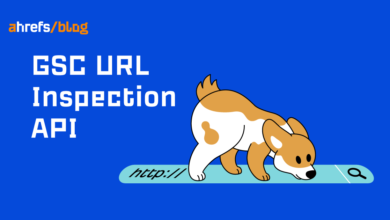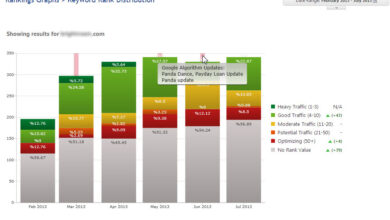Why Is Keyword Ranking Important for SEO? (Top 5 Benefits)-SEO

This search engine optimization (SEO) guide answers the question, “why is keyword ranking important for SEO?”
Below, you’ll find out why keyword ranking matters for a website and get a list of the top benefits of tracking keyword rankings in SEO.
There’s also a section with additional resources that explain more about the fundamentals of keyword ranking to help you create the most effective search engine optimization strategy for gaining more organic visibility in the search engine results pages (SERPs).
Please enable JavaScript
Why Is Keyword Ranking Important for SEO?
Keyword ranking is important for SEO because higher keyword rankings get more organic search traffic. Tracking keyword rankings also helps you evaluate your SEO strategy, gives you insight into high-performing topics to target for new content, and identifies click-through rate issues in the SERPs.
Benefits of Keyword Ranking In SEO
1. Higher Ranking Keywords Get More Organic Traffic
The top benefit of keyword ranking in SEO is the increased organic traffic from higher search engine rankings. Websites on the first page of the SERPs get the majority of clicks, leading to more visitors and potential customers.
By conducting keyword research to find keywords with high search volume and low to moderate competition in your niche, you can gain faster and higher keyword rankings for your website. Also, analyzing your competitors’ websites to uncover their top-performing keywords helps you discover new areas to create better content that can potentially outrank their sites in the SERPs.
2. Helps You Evaluate Your SEO Strategy
Keyword ranking is also important because it helps you evaluate the effectiveness of your SEO strategy. By monitoring your website’s rankings for target keywords, you can identify areas where your efforts succeed and which still need improvement.
You can set up keyword rank tracking with popular tools like Mangools, SE Ranking, and Semrush to monitor your website’s keyword positions over time so you can measure the results of your SEO campaigns. This data-driven approach lets you make informed decisions, ensuring the best results for your online presence.
3. Gives You Insight Into High-Performing Topics to Target
Another advantage of keyword ranking for SEO is the insight it gives into high-performing topics to target for new content. Analyzing the keywords that drive traffic to your website makes it easy to identify the topics Google and other search engines are rewarding your website the most for in the SERPs.
This information can inform your content strategy by revealing patterns and topics that consistently perform well so you don’t have to guess what type of content to publish. When you analyze the keyword rankings that are driving the most traffic to your website, you can double down on those topics by expanding on the topic cluster.
4. Increases Website Revenue
Keyword ranking also matters because it directly impacts your website’s revenue potential. As your website’s visibility in search results improves, so does the likelihood of attracting more visitors who may become customers.
By tracking keyword rankings, you can identify search terms that are more likely to lead to conversions based on search intent and conversion data. This strategy then allows you to better optimize for conversions by creating content that addresses user needs, encourages engagement, and leads visitors to take a specific action to generate more leads, sales, and revenue for your business.
5. Helps You Identify Click-Through Rate Issues
One of the most important reasons for tracking keyword ranking is to help you identify click-through rate (CTR) issues. If your website ranks well for a keyword but has a low CTR, it may indicate a problem with the web page’s title tag or meta description.
By monitoring your keyword rankings and CTR, you can pinpoint and address any issues that may negatively impact your website’s performance in the search results. You track CTR for each URL in the Google Search Console to monitor your website’s clicks for individual keywords. Keywords with a high ranking but low CTR will be the keywords you want to investigate and look for ways to improve with better title tags and meta descriptions.
Learn More About Keyword Ranking
The links below explain more about keyword ranking and how it applies to search engine optimization. Use these resources to expand your knowledge on the subject.
Keyword Ranking Is Important for SEO Summary
I hope you enjoyed this guide answering the question about why is keyword ranking important in SEO.
As you discovered, keyword ranking matters because higher keyword rankings get more organic search traffic and helps you evaluate the success of your SEO strategy. Other top benefits of keyword ranking in SEO include giving you insight into high-performing topics to target for new content, increasing website revenue, and helping you identify click-through rate issues in the SERPs.
Stephen Hockman is an entrepreneur and founder of SEO Chatter. He specializes in search engine optimization and digital marketing and has been fascinated with SEO since 2005. His goal is to share the best tips and news about search engine marketing to help you get more website traffic.
#Keyword #Ranking #Important #SEO #Top #Benefits





